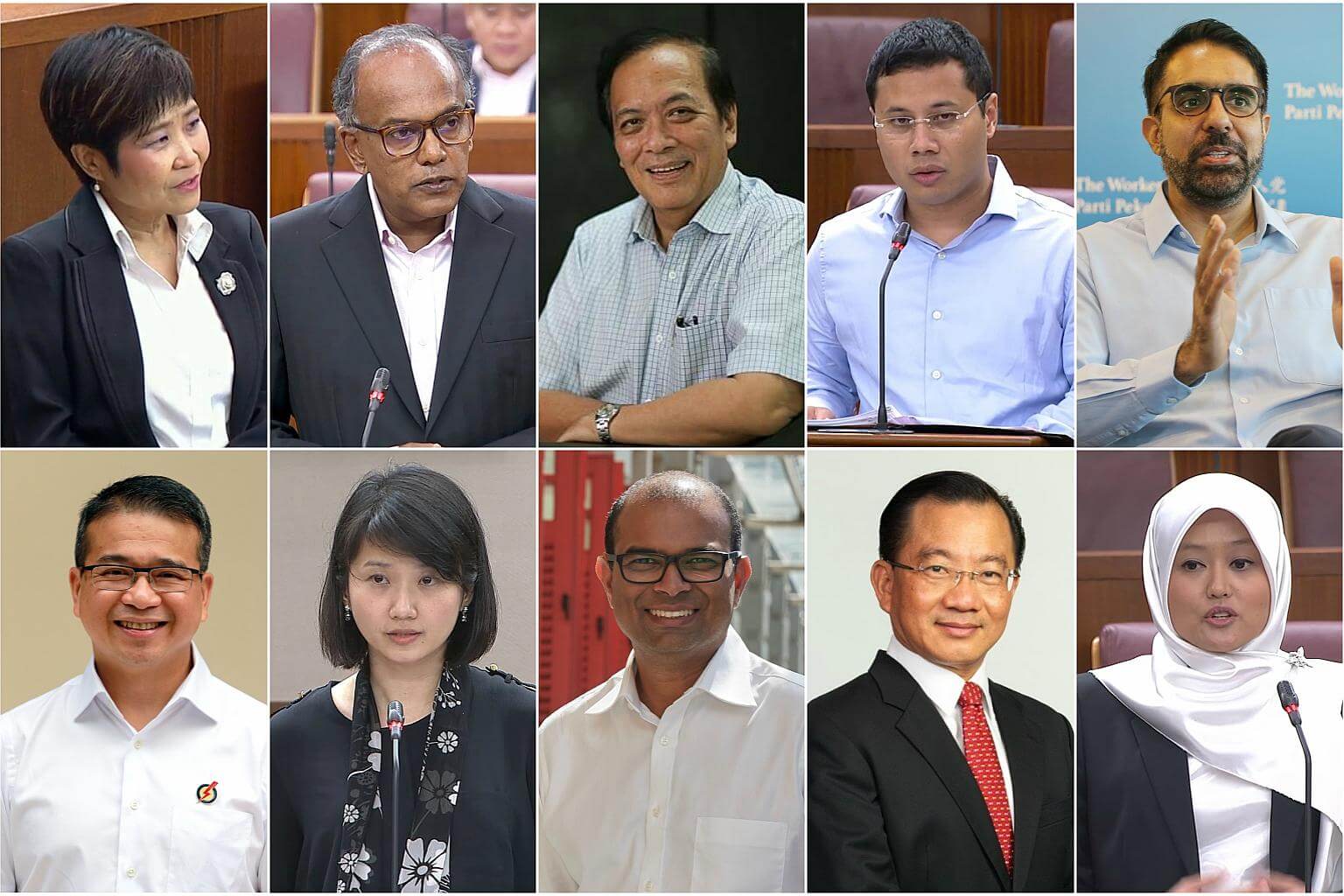Select Committee on fake news named; includes two ministers, WP's Pritam Singh
Sign up now: Get ST's newsletters delivered to your inbox

The select committee tackling the threat of fake news will be chaired by Charles Chong (top row, centre) and consists of (clockwise from top left) Chia Yong Yong, K Shanmugam, Desmond Lee, Pritam Singh, Rahayu Mahzam, Seah Kian Peng, Janil Puthucheary, Sun Xueling and Edwin Tong.
PHOTOS: ST FILE, GOV.SG, LIN ZHAOWEI FOR THE STRAITS TIMES, LIANHE ZAOBAO, UNITY HEALTH SEMINAR WITH LIANHE WANBAO
SINGAPORE - A 10-member committee of MPs that will recommend how Singapore should tackle the problem of fake news has been formed, said Deputy Speaker Charles Chong on Thursday (Jan 11).
The committee, chaired by Mr Chong, comprises seven People's Action Party MPs and ministers, one MP from the Workers' Party and one Nominated MP (NMP).
They are Home Affairs and Law Minister K. Shanmugam, Social and Family Development Minister Desmond Lee, Senior Minister of State for Communications and Information and for Education Janil Puthucheary, and MPs Seah Kian Peng (Marine Parade GRC), Rahayu Mahzam (Jurong GRC), Sun Xueling (Pasir Ris-Punggol GRC) and Edwin Tong (Marine Parade GRC).
It will also include Workers' Party MP Pritam Singh and NMP Chia Yong Yong.
The committee was formed after a meeting called by the Committee of Selection in Parliament on Thursday, following a three-hour debate in Parliament on Wednesday which saw a unanimous vote for the Select Committee to be formed.
The committee's mandate is to examine and report on causes and consequences of online falsehoods, and to propose countermeasures, including legislation that may be needed.
Mr Chong told The Straits Times that the committee hopes to hold its first meeting "as soon as possible".
"(The issue of fake news) is quite an urgent problem in terms of what is going on in the rest of the world. Listening to the debate yesterday, (we felt that) while we want to (come up with recommendations) expeditiously, we also want to do a thorough job."
During the debate on Wednesday, MPs raised their concerns about online disinformation which has manifested itself in a number of hoaxes here, but also cautioned against "heavy-handed" legislation.
Based on the debate, there was a consensus that there was a need to "say 'yes' to alternative views, but not alternative facts", said Mr Chong. "People may tend to misspeak or may not be accurate in what they say, and there was some apprehension (based on Wednesday's debate) as to whether that will be a serious offence."
Mr Chong noted the need for the committee to ensure that there is space for healthy discourse even as it comes up with recommendations to tackle the issue of fake news. He added that the committee will consult with experts and decide whether there will be public hearings as part of this process.
He said that a timeline for when the committee will put forth its recommendations has not yet been fixed, but added that it will study the problem of fake news carefully to define what is acceptable and come up with the best solutions.
Forming a Select Committee to examine a policy is a rarely used parliamentary procedure. The last time one gave policy recommendations was in 2004, for a Bill on building maintenance and management.
In a Facebook post on Thursday, Prime Minister Lee Hsien Loong said that the Select Committee will be seeking public feedback, and urged Singaporean to share their views.
He noted a powerful speech made by Nee Soon GRC MP Lee Bee Wah during the debate on Wednesday, during which she shared a "moving tale" on the harm fake news could cause.
She spoke of how, in the wake of the tense 1969 general election in Malaysia, rumours of violent attacks between races triggered actual attacks, and soon escalated into a full-scale race riot.
As an eight-year-old who had been living with her family on a rubber plantation in Malacca, she vividly recalled her mother telling her that if the Malays "came" for them, the family would run into the jungle to hide, and leave her newborn baby brother behind.
PM Lee wrote in his post: "Fake news became a talking point last year. But it has affected livelihoods and divided societies for far longer. The difference now is fake news can spread in a matter of hours, on social media or text messaging. Singapore, highly connected and wired up, is especially vulnerable... Everyone needs to be part of the solution, by checking that story before you click the Forward button!"


